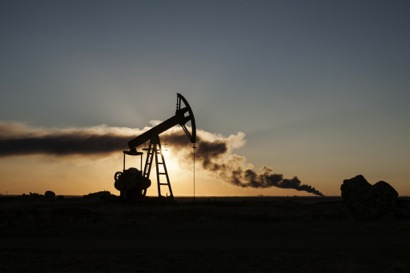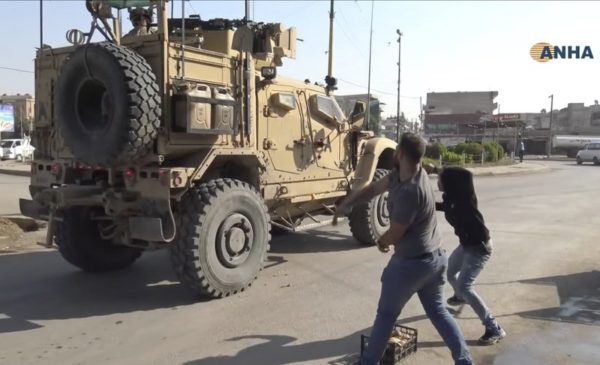 After abruptly pulling US troops who protected Kurdish fighters, President Donald Trump has identified protecting oil as the new goal in Syria. But experts question if the new strategy is realistic, or even legal.
After abruptly pulling US troops who protected Kurdish fighters, President Donald Trump has identified protecting oil as the new goal in Syria. But experts question if the new strategy is realistic, or even legal.
Defense Secretary Mark Esper said Friday that US troops were reinforcing their positions, including with mechanized forces, in Deir Ezzor in northern Syria.
Their mission will be to prevent the Islamic State group from gaining access to oil fields and securing “resources that may allow them to strike within the region, to strike Europe, to strike the United States,” Esper told reporters on a visit to Brussels.
Trump on October 6 said that some 1,000 US troops were leaving northeast Syria where they had kept an uneasy peace between neighboring Turkey and Kurdish fighters, who had lost thousands as they led the Western-backed operation that crushed the Islamic State group.
Trump vowed to get the United States out of “endless” wars — with Russia filling the void — and said that US troops were not there to protect the Kurdish fighters, whom Turkey links to separatists at home.
But Trump said Wednesday that a “small number” of US troops would stay to secure the oil.
“We want to keep the oil, and we’ll work something out with the Kurds,” Trump said.

The Kurdish-led Syrian Democratic Forces — who withdrew from a border area after a Turkish offensive made possible by Trump’s pullout — still control the Deir Ezzor oil fields east of the Euphrates River near the Iraqi border.
But in guarding the oil, the United States has sharply changed its rationale for why it remains in Syria against the will of President Bashar al-Assad, who has largely won a brutal eight-year civil war.
“This move would be a radical shift from the United States’ longstanding focus on defeating ISIS’s territorial caliphate and preventing ISIS from re-emerging in Syria and it would instead signal that the Trump team has a larger, geopolitical objective in Syria,” said Nicholas Heras, a fellow at the Center for a New American Security.
The United States would effectively be holding Syria’s oil resources hostage as it pushes Assad and his Russian backers to accept US ideas for a post-war settlement, he said.
“America’s mission in Syria is morphing from a noble battle against the most reviled terrorist organization in the world into a quixotic gambit to force changes in Assad’s behavior by taking Syria’s oil,” Heras said.
– Dubious legality –
Trump, who has mused in the past that the United States should have seized Iraq’s oil after the 2003 invasion, said Monday that Washington wanted to keep Syria’s fields.
“Maybe we’ll have one of our big oil companies to go in and do it properly,” Trump said.
Brett McGurk, the US envoy who built the coalition to fight the Islamic State group until he resigned in protest in December, said that seizing Syrian oil would be illegal.
“Like it or not but it’s owned by the Syrian SYP,” McGurk said, referring to the state-owned Syrian Petroleum Company.
The former diplomat said that the United States had discussed with Russia the idea of exploiting the oil and putting proceeds into a trust to be used for post-war reconstruction.
“The Russians were not really hopping into that, I think they would be even less so now,” he told a conference.
An estimated 200 US troops are deployed with the Syrian Democratic Forces in Deir Ezzor.
But the number could prove insufficient if Russia tries to seize the zone, as it attempted in early 2018.
Some 200 pro-Russian mercenaries were believed to have been killed in a coalition strike as the fighters tried to seize a post of the Syrian Democratic Forces where US troops were present.
This time around, the operation could end quite differently. Abandoned by the United States, the Kurdish fighters have allied with Moscow.
ÂFP

Leave a Reply
You must be logged in to post a comment.